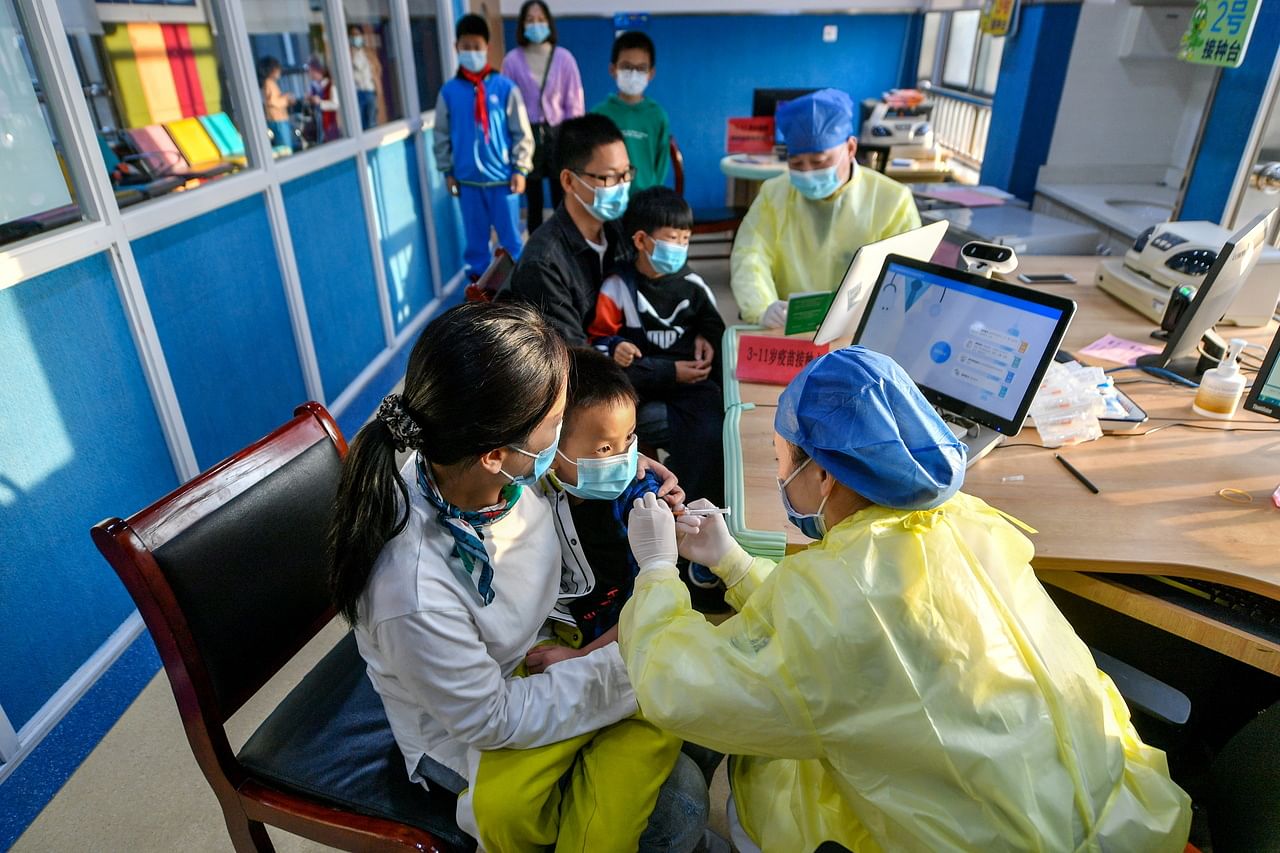China ramps up Covid-19 controls, warns of severe situation as winter sets in
Sign up now: Get insights on Asia's fast-moving developments
Follow topic:
BEIJING - China's Covid-19 management has gone into overdrive as the country battles its most widespread outbreak since the coronavirus was first detected in Wuhan city in late 2019, and as it gears up for the world's biggest winter sporting event.
Health officials on Saturday (Nov 6) warned of a complicated and severe situation as winter sets in and the outbreak continues to grow, reaching 20 provinces.
The National Health Commission reported 55 new cases on Saturday, of which 40 were local transmissions, with a burgeoning outbreak in northern Heilongjiang's border town of Heihe despite a citywide lockdown.
There have been nearly 700 cases in China in the past week, and while the number remains small compared to many other countries, Beijing has a low threshold given its zero-tolerance policy towards containing the virus.
"When there is an outbreak, it will be completely wiped out, to make sure that the spread is completely blocked, and that the domestic situation remains stable," said the commission's deputy director Wu Liangyou at a press conference on Saturday.
Its Covid-19 measures have been proven to be "in line with national conditions", and are well-coordinated with the country's economic and social development, he said, in response to a question on the impact of this zero-Covid-19 policy on its citizens and economy.
China's tough stance involves administering mass testing, lockdowns and quarantines on entire districts and even cities.
Its ports and borders have been on heightened alert to prevent further imported cases of Covid-19, as stricter checks kick in for flights, ships and vehicles carrying people and cargo.
Its immigration authority had asked citizens not to travel overseas unless essential.
Beijing has been aggressively ring-fencing itself ahead of a major political meeting of its top leadership this week (Nov 8-11) and as it prepares for the Winter Olympics that will take place from Feb 4-20 next year.
It has suspended inbound trains from more than 20 locations, and has discouraged people from travelling in or out of the city.
Several schools were ordered into lockdown, after infections were detected.
The country is targeting to hit a vaccination rate of 80 per cent, which could provide herd immunity. It has fully inoculated 1.07 billion people so far, reaching a rate of 77 per cent, said its health authority.
Several regions such as Beijing, Hubei and Liaoning have also begun to expand its inoculation campaign to include children from ages three to 11.
The shots, developed by home-grown drugmakers Sinovac Biotech and state-owned Sinopharm, have already been administered to those aged 12 and above.

<p>A medical worker administers a dose of a coronavirus disease (COVID-19) vaccine to a child in Huzhou, Zhejiang province, China October 26, 2021. Picture taken October 26, 2021. China Daily via REUTERS ATTENTION EDITORS - THIS IMAGE WAS PROVIDED BY A THIRD PARTY. CHINA OUT.</p>
PHOTO: X01745
Centre for Disease Control and Prevention's immunisation expert Huang Huaqing said on Saturday that the infection rate among children is "not low, not like what was believed to be before".
The country's vaccination drive is aimed at achieving herd immunity, and inoculation for children is part of that strategy, he said.
Cities such as Beijing, Guangzhou and Xi'an have also started providing booster shots to minimise the risk of more serious illnesses and outbreaks.

